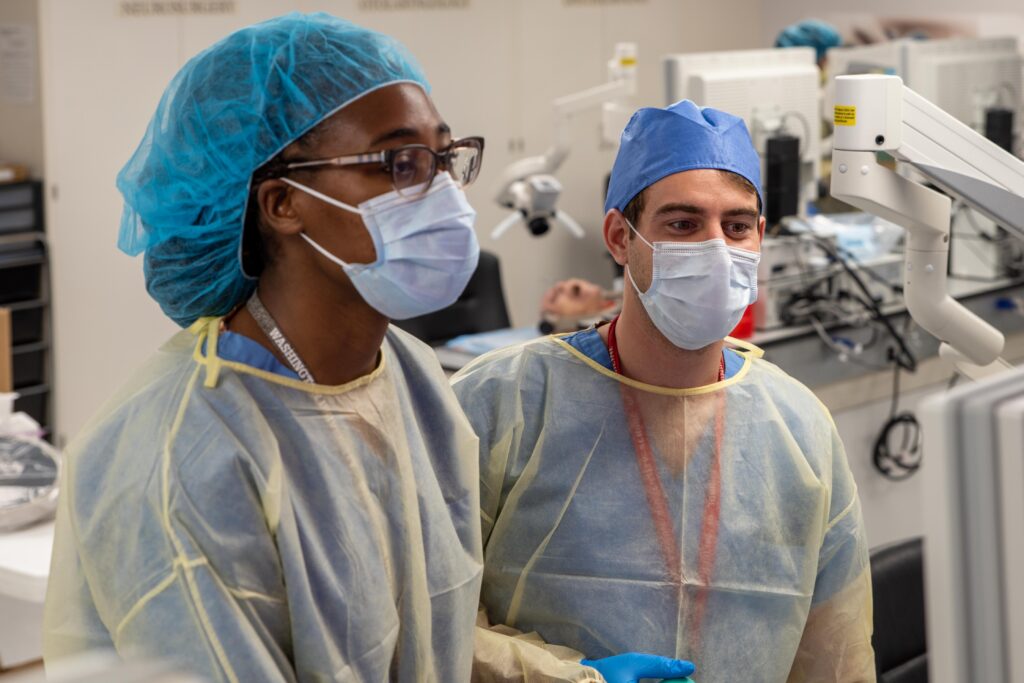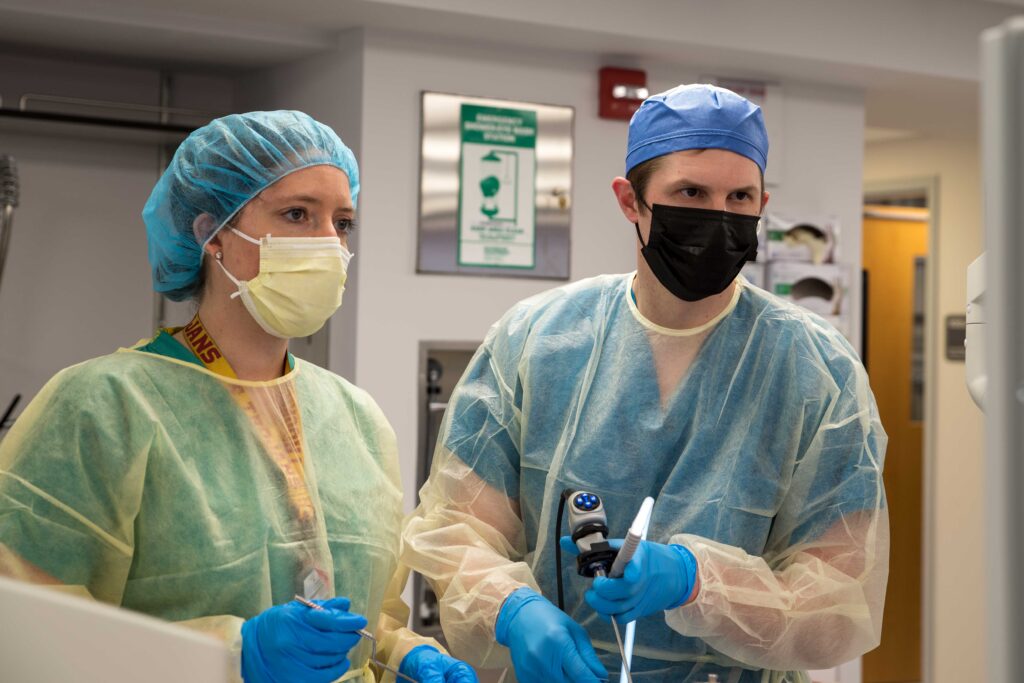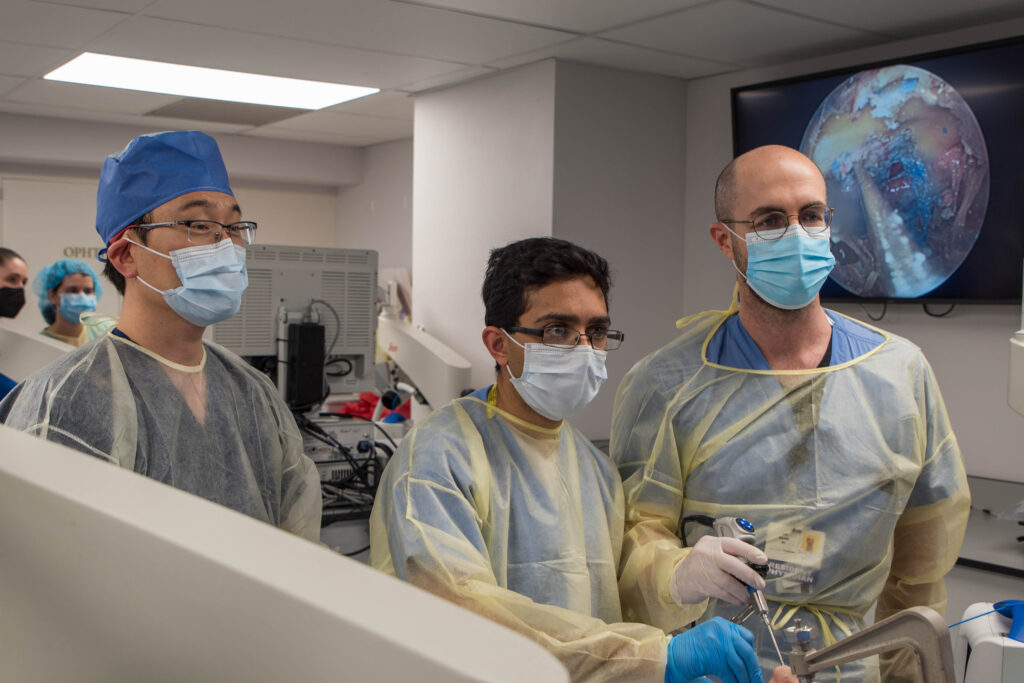Residents from the departments of Neurosurgery and Otolaryngology practiced a variety of surgical approaches to the anterior skull base at the annual Anterior Skull Base Lab on Saturday, April 23.
Held at Washington University School of Medicine’s surgical simulation lab, the event included lectures on anatomy and surgical approaches, followed by hands-on surgical practice using cadaveric specimens. Open surgical techniques for cranio-orbitozygomatic and supraorbital keyhole approaches were practiced during the morning session. Trans-nasal endoscopic procedures were the focus of the afternoon session.

Using these approaches, neurosurgeons and otolaryngologists regularly work together to surgically remove benign and malignant tumors involving the skull base and sinonasal tract and to correct vascular disorders such as aneurysms.
“Every year, we look forward to the multidisciplinary skull base course as it provides a phenomenal opportunity for our residents to hone their endoscopic skull base skills in collaboration with their neurosurgery counterparts,” said rhinologist and skull base surgeon Nyssa Farrell, MD. “This course is an essential part of our residents’ surgical development.”
“The course exemplifies the strong multidisciplinary collaboration between the departments of Otolaryngology and Neurosurgery,” said fellow Otolaryngology faculty member Lauren Roland, MD. “It illustrates how we treat complex surgical disorders and train the next generation of surgeons.”
This year marked the 10th anniversary of the course. Participating otolaryngology and neurosurgery faculty included:

- John Schneider, MD
- Nyssa Farrell, MD
- Lauren Roland, MD
- Patrik Pipkorn, MD
- Michael Chicoine, MD
- Albert Kim, MD, PhD (course leader)
- Joshua Osbun, MD
- Ananth Vellimana, MD
- Greg Zipfel, MD
“The faculty commitment to this resident course from both the ENT and Neurosurgery departments is incredibly high,” said Kim, who is also the director of the Brain Tumor Center at Siteman Cancer Center. “I am so proud to be colleagues with all of the skull base faculty here at WashU.”
The course was supported by a number of vendors including Medtronic, Integra/Codman, Storz and Zimmer Biomet.
